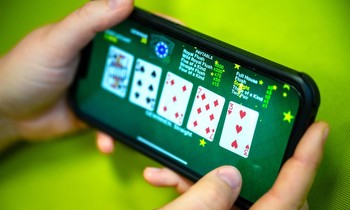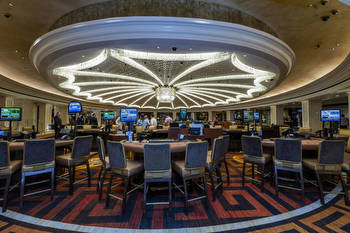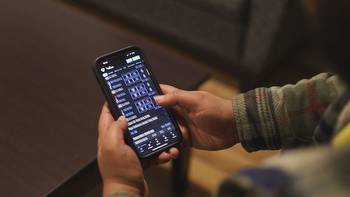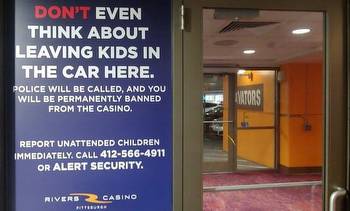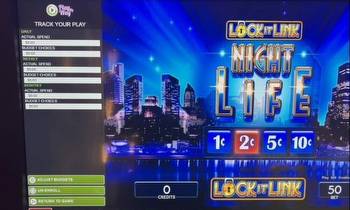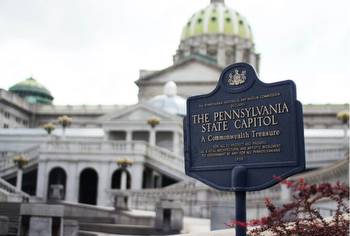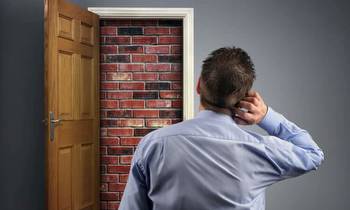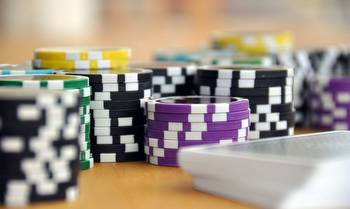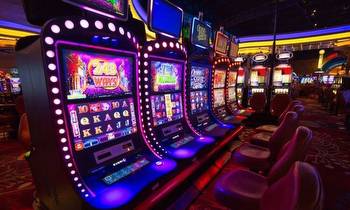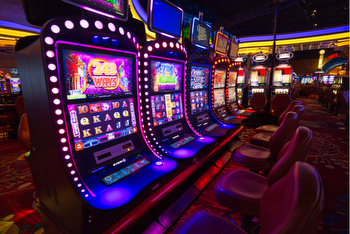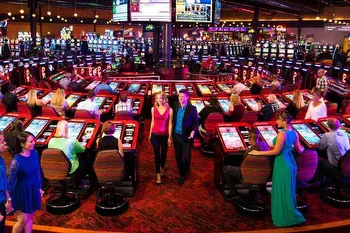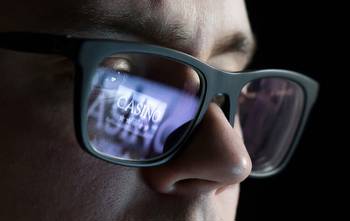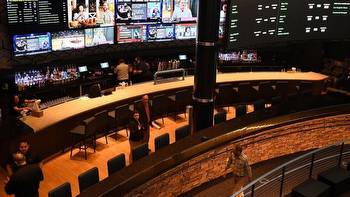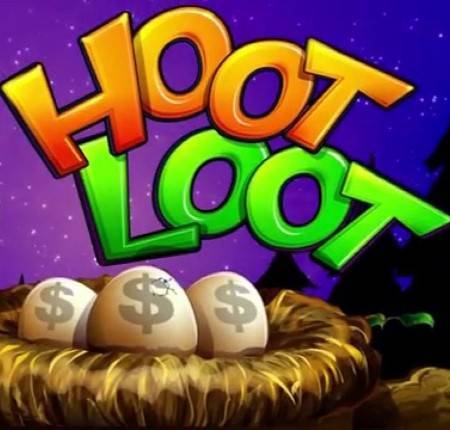Exclusion Confusion: May I Enter Casino Despite Online Self-Ban?
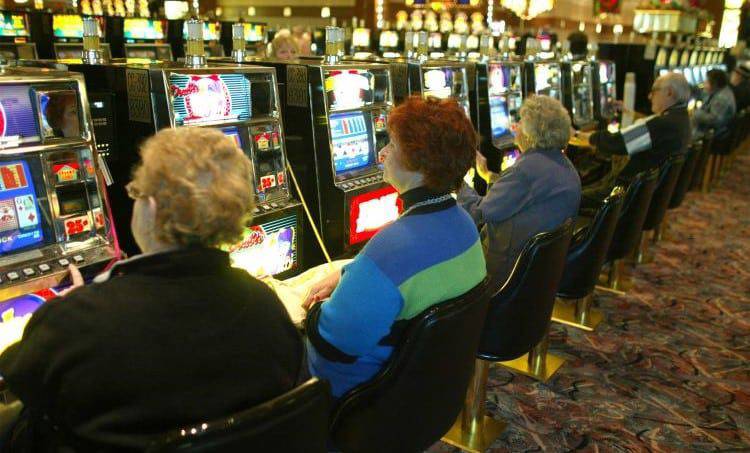
Britton Reider doesn’t consider himself a compulsive gambler, though he admits to using a dozen or more online casino apps more than he should have in Pennsylvania over the past year.
For that reason, on June 29 the 37-year-old mechanical engineer from a small town near Reading placed himself for one year on the state’s voluntary self-exclusion list to block his access to iGaming.
He had no problems with stopping, Reider told US Bets, though he and his wife also have a penchant for an occasional visit to a physical casino for a meal and slots play. And that’s how, the evening of Saturday, Aug. 26, he stumbled into one of the more embarrassing, stressful encounters of his life after driving 45 minutes east to the Wind Creek Bethlehem casino.
While playing a Huff ‘N Puff slot machine, Reider said, he was approached by security staff. They told him of Wind Creek’s policy that his presence on the state’s iGaming exclusion list led it to bar him from the physical casino as well. He would be escorted out, they said, after signing some paperwork.
Reider says he didn’t argue, even though the in-person ban on individuals concerned only about their excessive online play — so easy to over-indulge in 24/7 — doesn’t make sense to him.
His additional problem at Wind Creek, however, was that his slot machine was in a bonus round at the time staff intervened. He couldn’t quickly cash out and leave, as the security staff wanted. One staffer became so impatient as to cuss at him “with the F-word,” Reider said, and a crowd of onlookers gathered around to observe the commotion before he and his wife could walk out.
“It was like, what the hell, they’re treating me like some sort of criminal,” Reider said in recounting the incident calmly over the phone. “We went home, and both of us felt like, ‘That was pretty ridiculous.’ We couldn’t have felt more embarrassed, because we’re not the kind to get into trouble — it really caught us off guard.”
Regulator, casino explain the policy
A few key points to make here quickly before getting deeper into details:
- The Pennsylvania Gaming Control Board’s website enabling iGaming self-exclusion spells out in multiple ways that casinos have the right to bar such individuals from their physical properties.
- Despite those warnings, the board is often confronted at its monthly meetings by requests from individuals who ended up in straits similar to Reider. They wanted only to prevent online excesses but found their presence forbidden at one of the state’s 17 brick-and-mortar casinos. When seeking removal from the iGaming self-exclusion list in such cases, they are always denied.
- A Wind Creek Bethlehem spokeswoman said surveillance footage showed staff “acted in a completely professional manner” in handling Reider. She defended the policy of banning those on any exclusion list as one “in the best interest of guests” who have struggled with problem gambling tendencies.
- In the field of problem gambling treatment and responsible gambling best practices, there can be disagreement over whether someone who has admitted to one type of gambling problem can be entrusted to handle another form safely. The issue is most likely to arise in a state like Pennsylvania — one of six to embrace legal online casino games in addition to online sports betting — considering the difference between accessibility of slots and tables on a phone compared to driving to a casino.
“When I go to a regular casino, my wife is always there with me, and I have someone looking over my shoulder instead of her sleeping,” Reider explained. Playing on his phone, he eventually realized it wasn’t always healthy or fiscally prudent to gamble at night for as long as he wanted, hunting for operator bonuses and typically winning or losing a couple hundred dollars before stopping.
And for someone in his position, Brianne Doura-Schawohl, a national problem/responsible gambling consultant, believes casinos and regulators should be taking distinctions into account.
“It’s a bit of an antiquated line of thinking that an individual who struggles with one form of gambling struggles with all forms of gambling,” she said.
“I believe that effective policies for exclusion must remove as many barriers as possible for the individual seeking support. … In some ways, I feel for the operators. They are likely doing what is easiest and what they think is best for patrons. However, in many cases … the terms for exclusion are rarely articulated to the players, and sometimes not until after the exclusion has been completed.”
It’s all spelled out, but …
From the standpoint of Pennsylvania’s regulator, such notifications are clearly explained to those considering exclusion, said Doug Harbach, spokesman for the state gaming board that has overseen iGaming since the legislature approved it in October 2017.
There are currently 4,382 individuals on the iGaming self-exclusion list, he said, some of whom may be duplicates of the 20,951 opting to bar themselves from casinos for their own protection.
There are two parts of the online exclusion process where those completing it are forewarned they are potentially cutting off their casino access as well.
The general information about self-exclusion on the board’s website states in a question-and-answer:
“The PGCB’s iGaming Self-Exclusion List does not ban player participation in all PA gambling venues. However, gaming providers may have stricter self-exclusion policies, including banning self-excluded persons from all forms of gambling at their venues (casino gaming, horse racing, iGaming in other jurisdictions).”
Secondly, if the person actually proceeds to fill out the necessary self-exclusion forms, Harbach pointed out, they must sign or initialize sections that acknowledge the policy. In one place, they must electronically sign that “I am aware that a licensee and/or operator may ban me from their land-based gambling and non-gambling venues, and their websites and properties worldwide, as a result of my enrollment in this iGaming Self-Exclusion Program.”
So, why then, are people — in addition to Reider, a Penn State graduate — regularly seeming surprised to learn of the policy once at a casino, then complaining about it to a gaming board that feels they need to stay on the list for their protection?
“We believe this is a major life choice, and that they should be reading all of these acknowledgements before signing or initializing,” Harbach said. “It’s human nature a lot of times just not to read all of the instructions on a form, and we’re making our best effort to put this in front of them.”
While the Pennsylvania regulator does not advise or dictate to casinos about how to handle in-person visits by those with iGaming problems, it appears most have opted to exclude those persons, based on public board meetings where the issue has come up.
Julia Corwin, a Wind Creek spokeswoman, told US Bets, “We take responsible gaming very seriously and want to ensure our guests have the opportunity to pause all gaming services we provide while on the PGCB self-exclusion list.”
The website for the brick-and-mortar Wind Creek casino also has a section about responsible/problem gambling. It does not spell out that those on the iGaming self-exclusion list will be barred entry.
Just let me know, and I’ll comply
Returning to Britton Reider, the middle-class father of two who reached out to US Bets, he believes much of the confusion could be solved if operators simply notified their players club members who sign up for iGaming self-exclusion that they should not try to enter the casino either.
When he and his wife visited Valley Forge Casino Resort for the first time recently, after he was on the list, a staff member informed him that casino policy prevented her from issuing him a players club card, but there would be no problem if he chose to wager at machines anonymously.
At Wind Creek, he said, casino security and surveillance was able to track him down because he had placed a loyalty card in a machine.
Reider said he recalls reading the terms about how individuals signing up for one exclusion list could end up more widely excluded, but he did not believe operators allowed to do so would actually keep online players like him from their physical properties.
“When I got emails from platforms (to confirm he was being excluded from their online sites), none said, ‘And also, you can’t come into the physical casino.’”
He’s managing fine now, he says, although he did enjoy the spin of the slots, which is so hard to access now. “I liked that I could easily open up my phone at any point in time, and within a minute or two, if I had money available I would gamble.”
Reider actually shut himself down, he said, not long after one $10,500 jackpot that he figures got him slightly ahead in winnings from playing for the past year. Based on his reading about problem gambling, he did not feel addicted from the hours he was playing each week, but he felt it was wise to take a break.
“I just decided I’m not going to give that money back,” he said. He first tried using responsible gambling tools on various websites, but he found their cooling-off period to suspend play typically maxed out at 30 days. So he signed up for the state’s year-long self-exclusion, with no regrets about it now despite last month’s casino incident, though the encounter troubled him.
“If I’d received a letter, I wouldn’t have tried to get in — just tell me that’s what’s going to happen,” Reider said.
“With iGaming, it’s just too easy to pick up the phone and play, whereas I look at that and going to the casino as two completely different things. It’s like you’re punishing the people who are looking for help, which doesn’t seem right to me.”
Consultant Doura-Schawohl sympathized with him, advising, “One size does not fit all, and as long as we continue with that line of thinking, we fail to protect those that need it most.”








